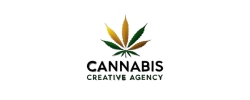Cannabis legalization has been a hot issue across the United States, and Illinois has been at the forefront of this movement. However, the state’s journey hasn’t been without challenges, especially regarding social equity. The Trouble with Illinois’ Cannabis Social Equity Program has been a significant talking point; many believe it hasn’t lived up to its promises. This article dives deep into the issues, explores potential solutions, and highlights how the state can create a fairer system for all.
Social equity programs aim to ensure that communities disproportionately impacted by the war on drugs have a fair chance to benefit from the legal cannabis industry. In Illinois, these programs were designed to help social equity applicant—individuals from marginalized communities—enter the cannabis market. But despite good intentions, the program has faced significant hurdles, leaving many wondering if it can truly achieve its goals.
In this blog post, we’ll explore the best dispensary brands in Illinois, the steps needed to improve the cannabis social equity programs, and how revising the equity program can promote social justice. We’ll also discuss why many social equity licenses are at risk of expiring and how licensing experts can help. By the end, you’ll clearly understand the challenges and opportunities in Illinois’ cannabis policy.
The Best Dispensary Brands in Illinois
Before discussing the challenges of the social equity program, let’s recognize the success stories in Illinois’ cannabis industry. The state is home to some of the best dispensary brands, which have set high quality and customer service standards.
- Cresco Labs: Known for its wide range of products, Cresco Labs is one of the most trusted names in Illinois. They offer everything from flowers to edibles, ensuring there’s something for every cannabis consumer.
- Green Thumb Industries (GTI): GTI operates several popular dispensaries, including Rise and Essence. They focus on creating high-quality products and providing excellent customer experiences.
- Verano Holdings: Verano is another major player in Illinois, offering premium cannabis products and a luxurious shopping experience.
These brands have thrived in Illinois’ cannabis market, but their success highlights the disparities smaller, social equity-owned businesses face. While big companies dominate the industry, many social equity applicants struggle to get their businesses off the ground.
Steps to Improve Trouble with Illinois’ Cannabis Social Equity Program

The Trouble with Illinois’ Cannabis Social Equity Program has been a significant concern for advocates and policymakers alike. Here are some steps that could help address these issues:
1. Simplify the Application Process
One of the biggest challenges for social equity applicants is the complicated and expensive application process. Many applicants lack the resources to navigate the legal and financial requirements. Simplifying the process and providing more guidance could make it easier for these individuals to succeed.
2. Increase Access to Funding
Starting a cannabis business requires significant capital, which many social equity applicant don’t have. The state could create grant programs or low-interest loans specifically for these applicants, ensuring they have the financial support needed to launch their businesses.
3. Provide Mentorship and Training
Operating a cannabis business is challenging, especially for those new to the industry. Offering mentorship programs and training sessions could help social equity applicants build the skills they need to succeed.
Revising the Equity Program for Social Justice
The cannabis social equity programs aren’t just about business but justice. The war has disproportionately impacted communities of colour on drugs, and social equity programs aim to right these wrongs. However, the current system has fallen short in many ways.
Addressing Past Harms
To truly achieve social justice, Illinois must address the harms caused by decades of discriminatory drug policies. It includes expunging past cannabis convictions and reinvesting cannabis tax revenue into communities most impacted by the war on drugs.
Ensuring Fair Representation
The cannabis industry should reflect the diversity of Illinois’ population. By revising the equity program, the state can ensure that social equity applicants have a real chance to participate in the industry.
Idealistic Beginnings of Social Equity
When Illinois first legalized cannabis, the social equity program was groundbreaking. The goal was to create a fair and inclusive industry that would benefit everyone, not just big corporations.
However, the reality has been far from ideal. Many social equity applicants have faced numerous obstacles, from high costs to bureaucratic red tape. While the program’s intentions were noble, its execution has left much to be desired.
Half of Eligible Marijuana Social Equity Retailers in Illinois at Risk of Losing Licenses
One of the most pressing issues facing the Trouble with Illinois’ Cannabis Social Equity Program is the risk of license expiration. According to recent reports, nearly half of Illinois’s eligible social equity retailers are at risk of losing their licenses.
It is due to a combination of factors, including delays in the licensing process and a lack of support for new businesses. If these licenses expire, it could set back the entire social equity program, leaving many social equity applicants without a chance to succeed.
Why Most Illinois Social Equity Cannabis Licenses Are Still Not Operational — How Licensing Experts Can Help

Many businesses are still not operational despite issuing hundreds of social equity licenses. Advocates are concerned about this, as it undermines the program’s goals.
Licensing experts can play a crucial role in addressing this issue. By providing guidance on navigating the licensing process, securing funding, and building a business plan, these experts can help social equity applicants overcome their challenges.
The Risk of Illinois Social Equity Cannabis License Expiration
The risk of license expiration is a serious threat to the cannabis social equity programs. If these licenses expire, it could mean the end of the road for many aspiring cannabis entrepreneurs.
To prevent this, the state must take action to extend deadlines, provide additional support, and ensure that social equity applicants have the resources they need to succeed.
How Cannabis Licensing Experts Can Help?
Cannabis licensing experts can be a game-changer for social equity applicants. These professionals have the knowledge and experience to guide applicants through the complex licensing process, helping them avoid standard pitfalls and increase their chances of success.
By partnering with licensing experts, social equity applicants can gain the support they need to navigate the challenges of the cannabis industry and build thriving businesses.
Conclusion
The Trouble with Illinois’ Cannabis Social Equity Program highlights the challenges of creating a fair and inclusive cannabis industry. While the program’s goals are commendable, its execution has fallen short, leaving many social equity applicants struggling to succeed.
Illinois can address these issues by simplifying the application process, increasing access to funding, providing mentorship and training, and creating a more equitable cannabis industry. Additionally, licensing experts can play a crucial role in helping social equity applicants navigate the industry’s challenges.
Ultimately, the success of Illinois’ cannabis policy depends on its ability to deliver on its promises of social equity and justice. With the right reforms and support, the state can create a cannabis industry that benefits everyone, not just a select few.
FAQs
What is a social equity applicant?
A social equity applicant is someone from a community disproportionately impacted by the war on drugs who is given priority in the cannabis licensing process to promote fairness and inclusion.
Why is the Illinois Cannabis Social Equity Program struggling?
The program faces challenges such as a complicated application process, lack of funding, and insufficient support for new businesses, making it difficult for social equity applicants to succeed.
How can licensing experts help social equity applicants?
Licensing experts guide navigating the licensing process, securing funding, and building a business plan, increasing the chances of success for social equity applicants.
What can Illinois do to improve its social equity program?
Illinois can simplify the application process, increase access to funding, and provide mentorship and training to help social equity applicants succeed.
Why are many social equity licenses at risk of expiring?
Delays in the licensing process and a lack of support for new businesses have left many social equity applicants unable to meet deadlines, putting their licenses at risk of expiration.




